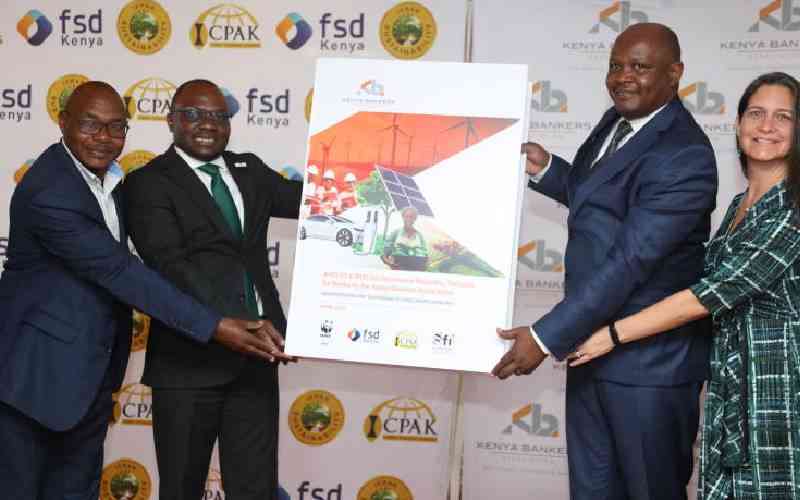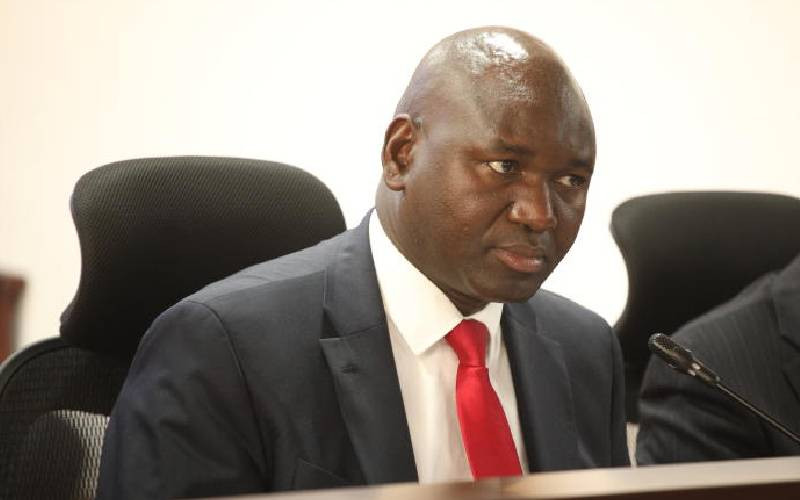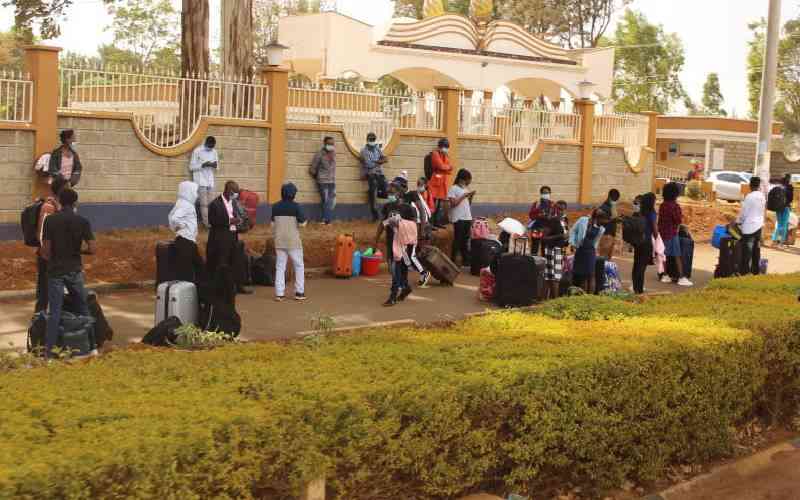L-R: WWF Head of conservation programmes Kenya,Raimond Molenje Chief Executive Officer Kenya Bankers Association,Juna Wala Director accounting & exchange services National Treasury & Tamara Cook CEO FSD Kenya during launch of the banking sector sustainability reporting template. [Wilberforce Okwiri,Standard]
×
The Standard e-Paper
Smart Minds Choose Us






